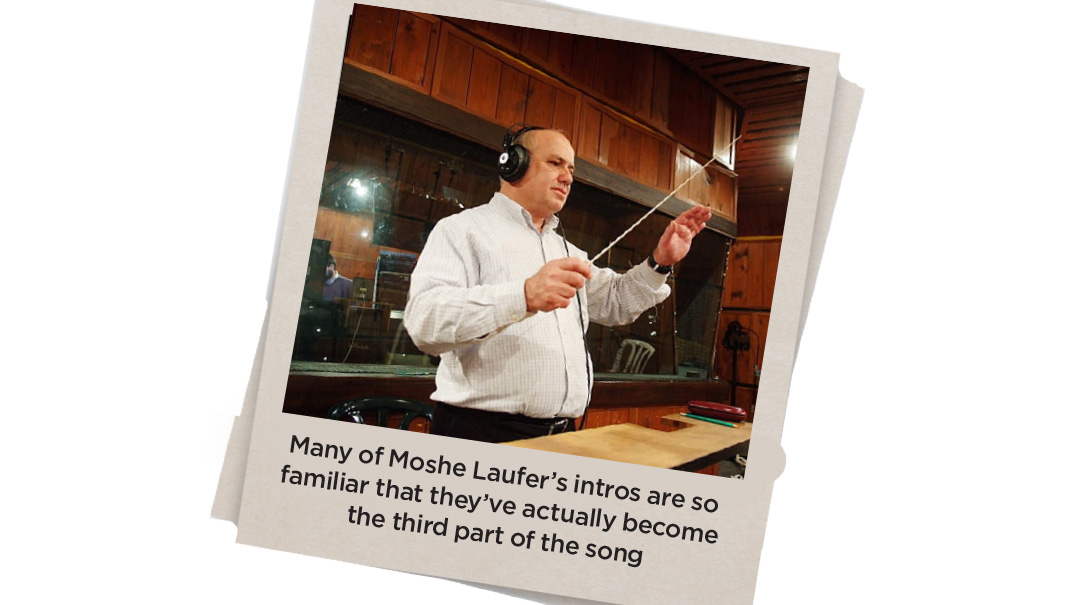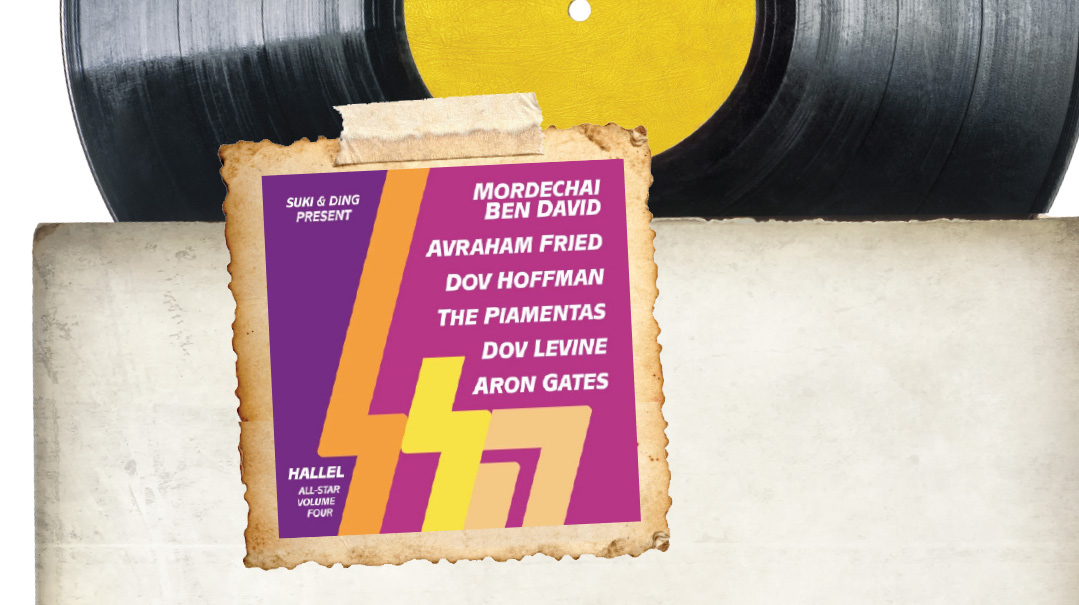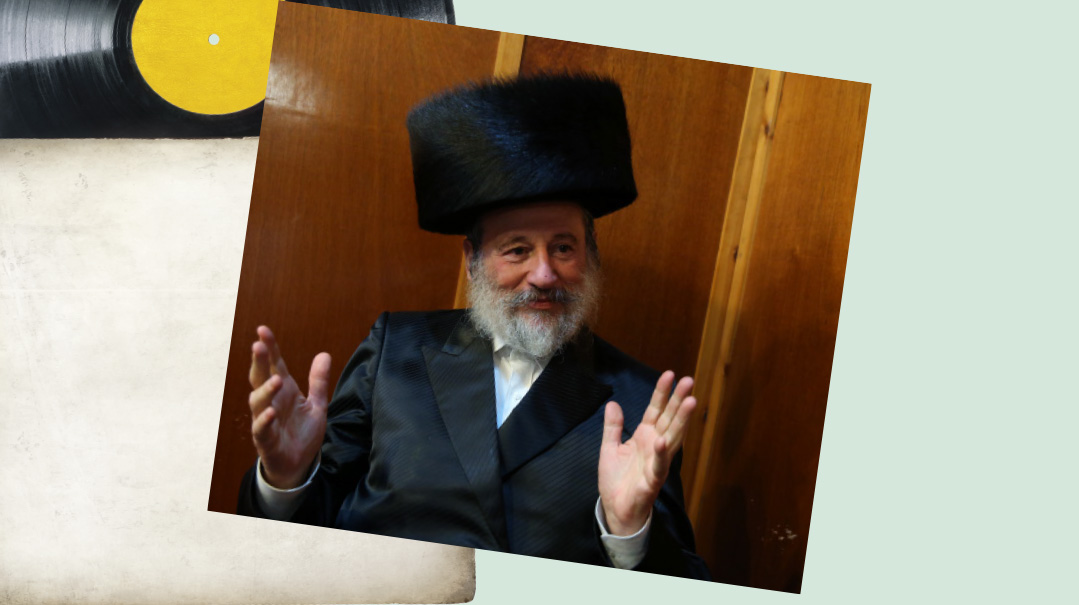Consider It Arranged

A good arranger can take a very ordinary song and make it into a number one hit

When a singer decides to release an album, his ticket to success is often the arranger. It might sound like a pareve title, but the arranger is the one who picks the keys, chords, tempo, style, instrumentation, rhythm and harmonies. A good arranger can take a very ordinary song and make it into a number one hit. I remember when the very same song was sent to two different arrangers for two separate albums, and you could barely tell the end-products started with the same material.
For the albums that SUKI BERRY and I have produced over the years, I’m fortunate that my partner is also my arranger. Suki says that the first thing he does when he gets a song is to sit down and learn the song very well, to really get its essence. After that, he tries to come up with the most appropriate arrangement for that particular song.
After all these years of hanging with Suki, what still astonishes me today about his arrangements is that he’s always able to add some type of shtick or a little extra something into the song to make it special. For example, in Avraham Fried’s, “Hashem’s the World” (composed by Suki’s wife, Chumie Berry, with lyrics by her sister Mrs. Miral Simcha and first appearing on our 1985 All Stars — Torah album), at the words “the earth breaks out in melody,” Suki added a few seconds of Tchaikovsky’s 1812 Overture, which was a fun and really perfect touch for that moment in the song.
Suki, for his part, is never encumbered by location. I’ve seen him create arrangements in airports, restaurants, the back seat of a car, and sometimes even in the studio itself, during a short lunch break.
I believe the component most crucial to the outcome of a song is the arranger’s frame of mind when he sits down to write the arrangement. Many years ago, MBD called Suki for an arrangement to the famous death-camp train “Ani Ma’amin” for one of the sets on his Once Upon a Niggun album. Suki told me how he sat down to arrange it, yet he felt that whatever he tried, he wasn’t doing the song justice. After all, this was a holy song, and it needed to come through that way. Unfortunately, a few days later, there was a brutal terrorist attack in Jerusalem, and after Suki came home from the mass levayah, he sat down at his piano and the entire arrangement fell into place for him.
I asked legendary arranger YISROEL LAMM, who has arranged hundreds of albums, which arrangement stands out from all the others. He told me that around the time he was approached for the first HASC Concert, he felt that he was entering a new chapter of creativity in his life. So, when he sat down to compose and arrange the HASC theme song, he got the feeling that he was embarking on something brand new, something waiting to be created. And he created it.
Master composer and arranger MOSHE MONA ROSENBLUM told me about the conversation he had with Lipa when Lipa asked him to arrange his song “Seven Kinder,” a heartrending Yiddish ballad about the mesirus nefesh of Chanah and her Seven Sons, for his recent BavLipa album. Lipa discussed the horrific story in great, dramatic detail, and by the time he got to the part when the youngest child selflessly sacrificed himself al Kiddush Hashem, Mona was practically in tears. The unimaginable sacrifice felt so real and profound that Mona had all the inspiration he needed to arrange the song properly. It just opened up in front of him and spread itself into the powerful song it is today.
Many of MOSHE LAUFER’s arrangements are unique in that he’s arranged lots of the songs that he himself composed. By doing this, he actually makes the intro into the third part of the song. Some classic examples are Dedi’s “Hu Yigal Osanu,” Avraham Fried’s “Chazak” and “Invei Hagefen,” and MBD’s “Samcheim.” Among dozens upon dozens of Moshe Laufer’s famous intros is the intro/interlude to Rabbi Hillel Paley’s “Shiru Lamelech,” which became the most popular part of the song.
Sometimes, the way a song is familiar to us is really the whim of the arranger. When Suki arranged the song “Racheim Bechasdecha” on MBD’s Just One Shabbos, composed by Baruch Chait and Abie Rotenberg, he couldn’t decide if it should be slow or fast, or what type of rhythm he should use. So he decided to use them all. Listen carefully and you’ll hear no less than seven different rhythm and tempo changes.
So, although an arranger sounds like someone you’d call to organize a kiddush in shul, they’re actually the clinching factor to whether a song becomes a huge hit or not. Maybe one day arrangements will be made for a more sophisticated title for this crucial job in the music business.
(Originally featured in Mishpacha, Issue 949)
Oops! We could not locate your form.







